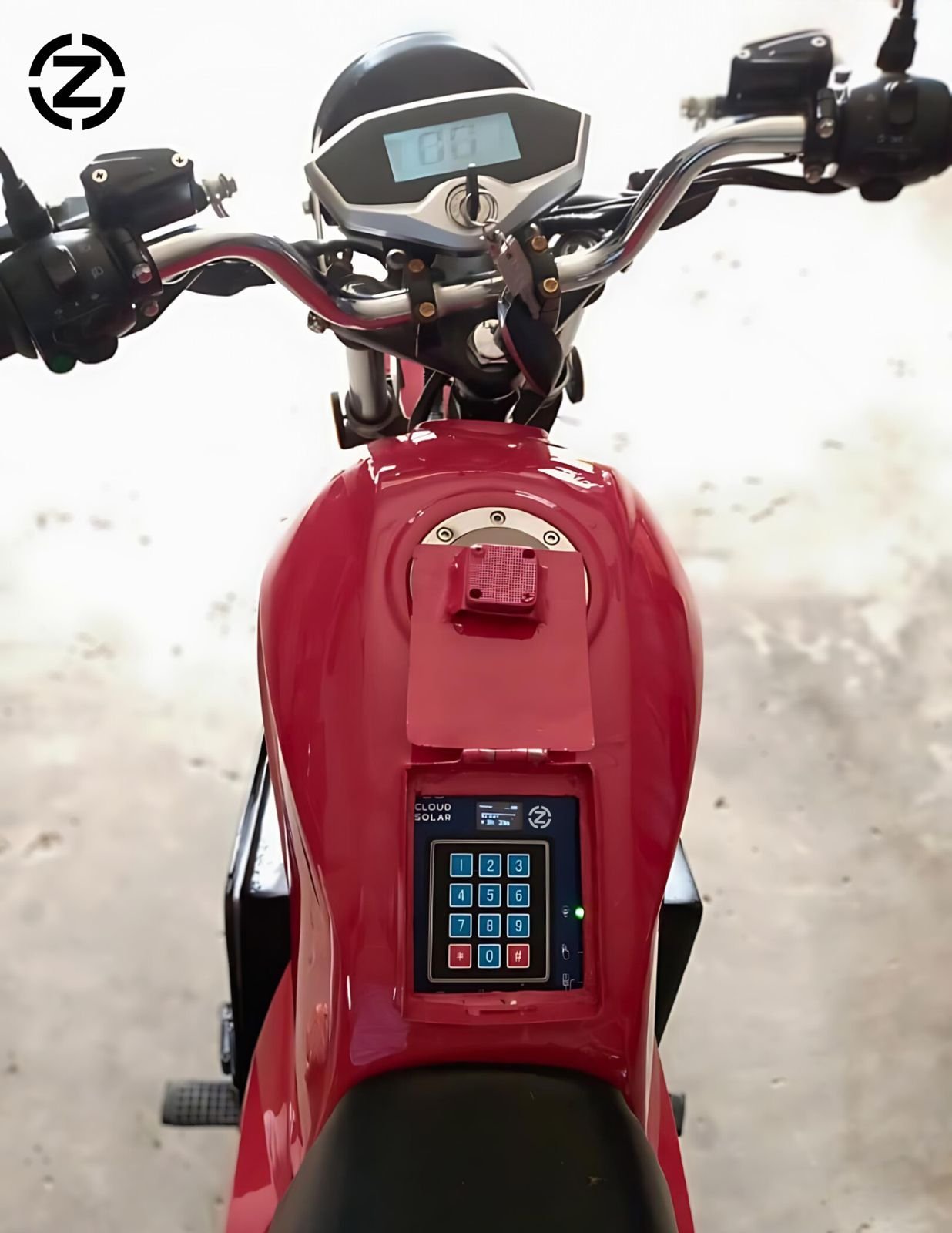Olou’s interest and commitment to bring electricity and opportunities to Benin’s small- and medium-scale enterprises started in 2012 when, back home after years abroad pursuing higher education, he came to grips with the reality of there being a big gap between the aspirations of local entrepreneurs and the affordances of Benin’s electric power system. An example is the cotton industry, with Benin’s traders exporting mostly raw cotton to countries like Bangladesh and then importing woven fabric or even second-hand clothing. In 2013, Focus Energy was born with the idea to expand access to productive uses of energy and promote Benin’s economic development through decentralised energy solutions. Olou’s business is now a very successful venture, having since then been rebranded as ZED Motors and expanded to include solar irrigation, solar refrigeration, and e-mobility (in addition to solar home systems).
The journey to success, however, was not a straightforward one. Especially in the early stages, delivering prompt after-sales services was challenging – for customers were located all over the country and not always able to report exactly what was wrong with their system. At the same time, customers depended on reliable power supply for running their business – you can only imagine how badly intermittent refrigeration would affect a meat seller! Another problem was the lack of suitable mechanisms that would allow a small company like Focus Energy to offer financing options to customers. PAYG is mostly discussed as being an enabler for end users, but in truth end-user financing is risky. While such risk can usually be absorbed by international companies, Africa-based start-ups like Olou’s see their market share shrink as they are faced with competition by well-networked enterprises with easier access to capital markets.
“PAYG has been on our radar since 2015. Mostly, we were looking for a mechanism that would allow us to expand our market base while taking on an acceptable level of risk. Consumer credit is a powerful enabler but can also destabilise a small-scale Beninese start-up like ours.“
Olou, CEO and founder, ZED Motors
Since those very early days, Olou identified the need for a charge controller that would at once work as a remote monitoring device and as a mechanism for switching on and off power supply and unlocking usage upon payment. The solutions on the market were not as flexible, however: when providers offered the option of switching power supply on and off depending on payment, such option would be mostly limited to the system at hand. In other words, the solutions they offered were unable to accommodate the possibility of users expanding the capacity of their system, adding appliances for domestic use and even venturing into productive uses of energy. Yet the reality of energy demand is such that it tends to grow over time. The drawback of many market solutions, then, is for households to end up owning multiple kits and having to use different payment systems for each of the appliances they own.
Then in 2019, during a business trip to France, Olou came across Cloud Solar – a device that promised precisely the flexibility that he was looking for. He immediately booked a flight to London and returned to Benin with a few units to test. That was Cloud Solar's first prototype, with basic remote monitoring features, 12V and limited amperage. Since then, Focus Energy and Inclusive Energy have been working together to improve that first version, by increasing both amperage and load to accommodate a number of appliances – whatever the user’s aspirations – by expanding the range of data points reported on the portal, and by testing the application of Cloud Solar to different productive uses of energy. The two companies also successfully applied to secure government funding for the development and integration of a payment mechanism that would work both manually – in case of Internet disruptions – and digitally.
“With Cloud Solar now you have both options: you can manually insert a token using the keypad, allowing you to immediately unlock the system, or you can use your mobile device to remotely activate your solar power supply.”
With the rebranding of Focus Energy as ZED Motors, Olou’s focus has increasingly been on e-mobility. Most recently, he experimented with Cloud Solar in a number of ways, integrating it into their motorcycles as well as using it to manage payments in battery charging stations. In Olou’s vision to democratise e-mobility, Cloud Solar plays an important role as it enables ZED Motors to offer a model by which drivers of electric vehicles do not need to own batteries but can rent them – considerably reducing the barriers preventing people from accessing e-vehicles. In this model, the responsibility for recycling batteries and managing the end-of-life stage stays with ZED Motors – in an attempt to reduce the environmental impact of dispersing batteries in a context like Benin. “We African entrepreneurs are grateful to companies like Inclusive Energy for working with us to bring quality, flexibility, and opportunities to local individuals and businesses.”
Find out more about ZED Motors here: https://www.zed-motors.com/



